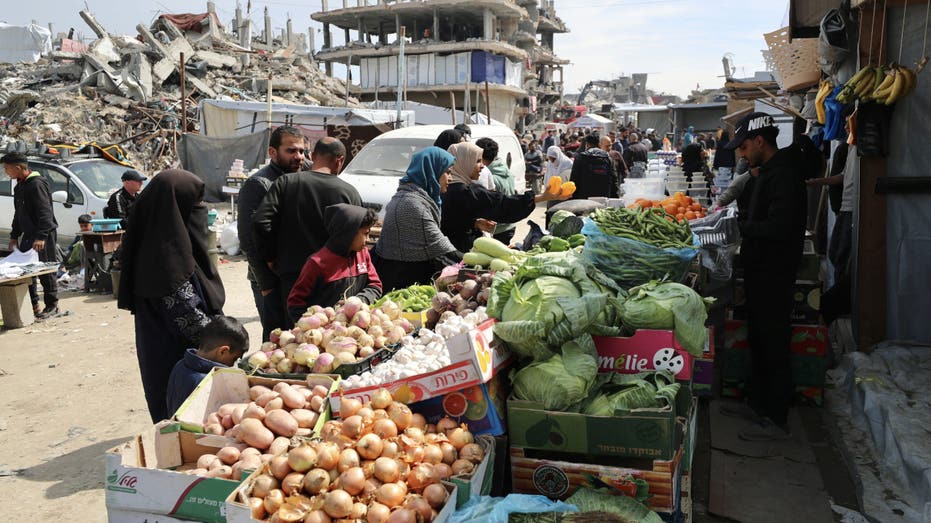New Study Challenges ICC Starvation Charges Against Israel, Highlights Hamas' Role in Aid Mismanagement

Sarah Johnson
March 10, 2025
Brief
A new Israeli study challenges ICC claims of starvation in Gaza, highlighting Hamas' control over aid distribution and revealing sufficient food supplies but major distribution issues.
A groundbreaking study has put a serious dent in the International Criminal Court's (ICC) investigation into claims of starvation in Gaza. The research, conducted by Israeli public health experts, shifts the spotlight to Hamas and its control over aid distribution in the region.
Following Hamas' refusal to extend a ceasefire and release 59 hostages, Israel halted all goods flowing into Gaza last week. While U.N. relief chief Tom Fletcher called this move "alarming," the Trump administration gave it a firm nod of approval. Meanwhile, retired Lt. Col. Jonathan Conricus, a former IDF spokesperson, called allegations of starvation unfounded. He pointed out that over 25,200 trucks of aid had reached Gaza during the ceasefire, enough for four months. "If there’s hunger, it’s because of Hamas corruption, not a lack of food," he told reporters.
The study, titled "Food supplied to Gaza during seven months of the Hamas-Israel war," used data from Israel’s Coordinator of Government Activities in the Territories (COGAT) to examine food shipments from January to July 2024. It revealed that the average daily caloric intake per person exceeded humanitarian standards, debunking claims of famine.
Led by experts Aron Troen and Ronit Endevelt, the research cataloged food shipments based on caloric, protein, and micronutrient content. Results showed that 14,916 trucks carried 227,854 tons of food into Gaza in the first four months of the year, averaging 124 trucks daily. The daily per capita caloric supply reached 3,374 kcal, with sufficient protein and fat to meet international benchmarks.
However, distribution within Gaza remains a glaring issue. "Hamas systematically weaponized food distribution, using it as a tool of control," said Endevelt. Aid reportedly failed to reach the needy as Hamas diverted supplies to the black market or prioritized its fighters. The study emphasized that hunger in Gaza stems more from mismanagement than a lack of food.
The ICC investigation, meanwhile, presses forward. Its spokesperson emphasized a reliance on multiple sources, maintaining confidentiality over its ongoing probe. Critics, including the study’s authors, argue that widely cited claims of mass starvation are based on flawed reports that overlook Hamas’ role in manipulating aid.
Despite the challenges of publishing in a politically charged climate, the study has garnered attention for its rigorous methodology and transparent data. Endevelt called it one of the most intensely reviewed studies she's ever worked on, underscoring its credibility.
The authors stressed the need for better distribution mechanisms, urging international agencies and Palestinian civil society to work without Hamas’ interference. "Given the amount of food entering Gaza and ongoing reports of hunger, distribution must be improved," Troen concluded. "Transparent cooperation is key to ensuring aid reaches those who need it most."
Topics
Editor's Comments
This study lays bare the complexities of aid distribution in conflict zones, and frankly, Hamas' manipulation of resources is as outrageous as it is tragic. The fact that enough food enters Gaza but doesn’t reach those in need because of corruption speaks volumes about the real villains here. It’s a stark reminder that starvation isn’t always about supply – sometimes, it’s about who’s controlling the spoils.
Like this article? Share it with your friends!
If you find this article interesting, feel free to share it with your friends!
Thank you for your support! Sharing is the greatest encouragement for us.



